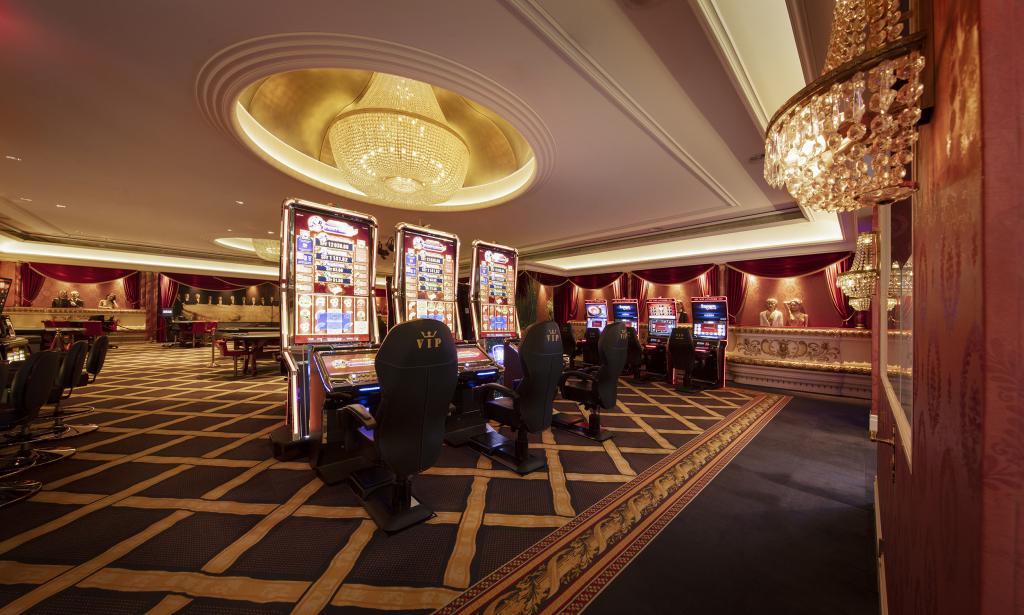
Casino entertainment have long been a staple in human culture, offering not just entertainment but a captivating reflection of our hopes, ambitions, and concerns. From the spinning reels of a slot machine to the skill-based strategies of poker, these games represent a spectrum of human emotions and experiences. At their core, casino games are not just a chance to make profits; they are a snapshot of life itself, where risk and reward intertwine and fate can change in an moment.
As players convene around tables or sit in front of brightly lit machines, they participate in a ceremony that transcends mere betting. These games reflect our natural desires for social interaction, excitement, and the search for fortune. They also unveil deeper truths about human behavior, such as our relationship with fate and the excitement of the unknown. In exploring casino games, we uncover not only the rules of play but also the intricate pattern of the human experience, showcasing our intertwining narratives of aspiration and reality.
The Mind Behind Gambling
Gambling is deeply rooted in the psyche of individuals, tapping into various feelings and wants. The thrill of risk-taking is a core aspect that attracts participants, be it the excitement of spinning a roulette or the excitement of drawing a winning card in a poker game. This rush of adrenaline is frequently likened to other forms of thrill, as the uncertainty of outcomes triggers a unique psychological response. Players often find themselves entranced by the possibility of winning big, leading to an almost magnetic draw toward casino games.
Another, a crucial component of the psychology behind gambling is the concept of hope and ambition. Players often indulge in dreams of financial freedom and the luxurious lifestyle that can accompany winning. This hope fuels their continued participation in gambling, as it provides a sense of purpose and the conviction that a life-changing win could be just one wager away. The narrative of overcoming odds and finding success resonates with many, reinforcing their commitment to play and engage with these games.
Lastly, social aspects play a significant role in gambling psychology. Gambling venues are designed to foster social interaction, where gamblers gather to share the journey of wins and losses. This shared aspect not only amplifies enjoyment but also influences behavior, as individuals often imitate the actions of others around them. The collective approval found in shared excitement can enhance the emotional experience, making casino games a reflection of not just personal desires but also shared involvement within the gaming community. 78WIN
### Risk and Reward: A Double-Edged Sword
Casino games embody the subtle balance between risk and gain that resonates deeply with human psychology. The thrill of placing a wager is often accompanied by a jolt of energy, as players are confronted with the chance of winning big, yet conscious of the risk to suffer losses. This bipartisan experience reflects a essential aspect of life: the decisions we face often come with inherent risks, and the pursuit of reward can drive us to make risky moves we might not otherwise consider. In this way, casino games reflect real-world choices, enticing players to risk not just their capital, but also their hopes.
The allure of grand jackpots and winnings fuels a wave of hope, encouraging players to imagine a brighter future that could arise from a single victorious spin of the wheel or flip of a card. This hope can compel individuals to engage in riskier behaviors, urging them to take greater risks in search of economic benefit. However, just as in life, the outcomes of these decisions can lead to both triumph and despair. The stories of both jackpot winners and those who have faced losses everything at the casino demonstrate the chaotic nature of chance and its consequential effect on our lives.
Ultimately, the experience of engaging with gambling activities serves as a vivid illustration of the nature of humanity. Every round played is imbued with the tension of risk, as gamblers weigh the gains against the dangers. This dynamic not only highlights the thrill that comes with betting but also unveils the risks that come with the longing for more. As we navigate the challenges of decision-making and results in both the casino and in life, we find that the quest for gain shapes our identities and experiences in profound ways.
Community and Solitude in Gambling Culture
Casino culture is a unique combination of communal interaction and individual endeavor, reflecting the tensions of human experience. Players often come together around tables, sharing in the excitement of the game, celebrating wins, and sympathizing over losses. This communal aspect is crucial, as it establishes a sense of community and bonding among diverse groups of individuals. Regular attendees to casinos may form friendships and develop routines, turning the gambling venue into a second home where they experience connected to a larger community of gamblers.
However, the allure of casino activities can also result to isolation. As players become immersed in the excitement of gambling, they may withdraw from personal relationships or fail to interact with the world outside the casino. For some, the pursuit of a jackpot can overshadow genuine relationships, leading to isolation. The experience of being surrounded people yet experiencing solitary is not rare, as the focus shifts from shared enjoyment to the private stakes of each individual’s path.
This interaction of society and solitude creates a vivid mosaic that defines gaming culture. It showcases the complexity of human interactions, where happiness and sorrow exist together. Gambling venues serve as both a sanctuary for social engagement and a platform for individual struggles, demonstrating how deeply entwined our desire for companionship and the personal quest for wealth can be. In navigating this landscape, players confront their own stories—seeking both the rush of the wager and the fellowship of other gamblers, ultimately mirroring the broader spectrum of individual experience.